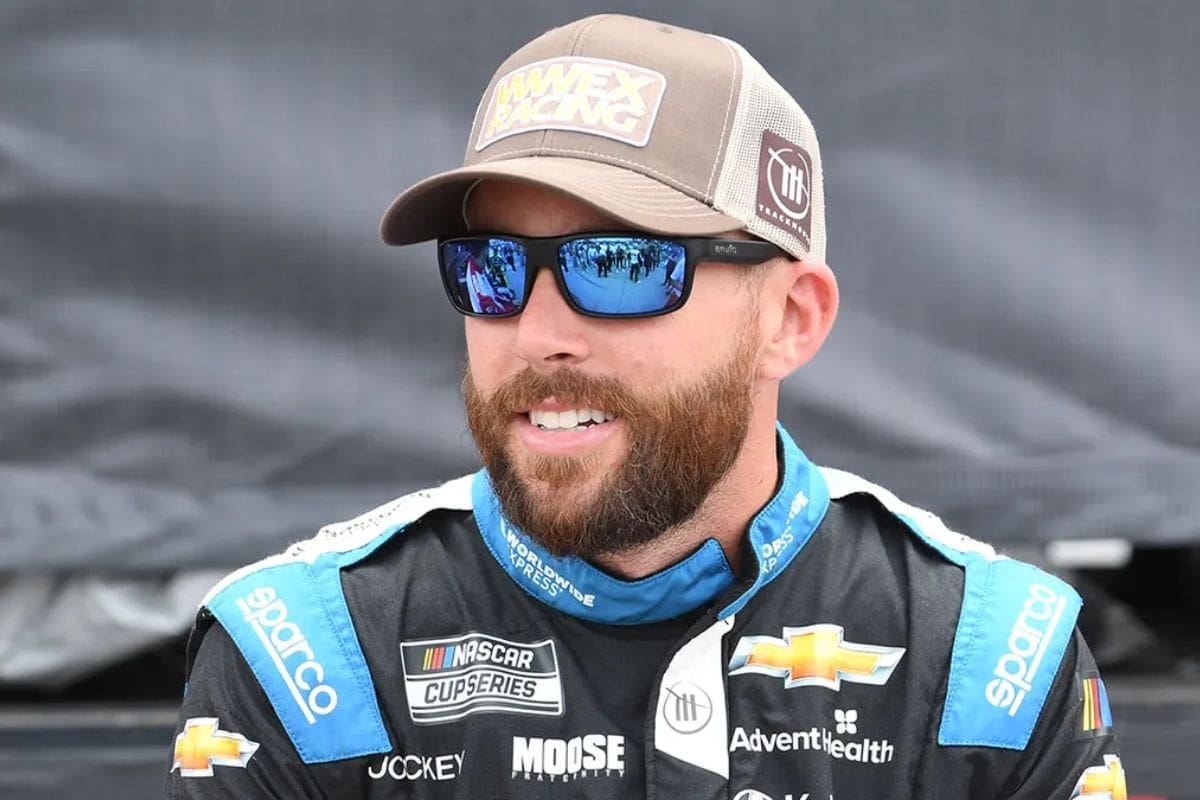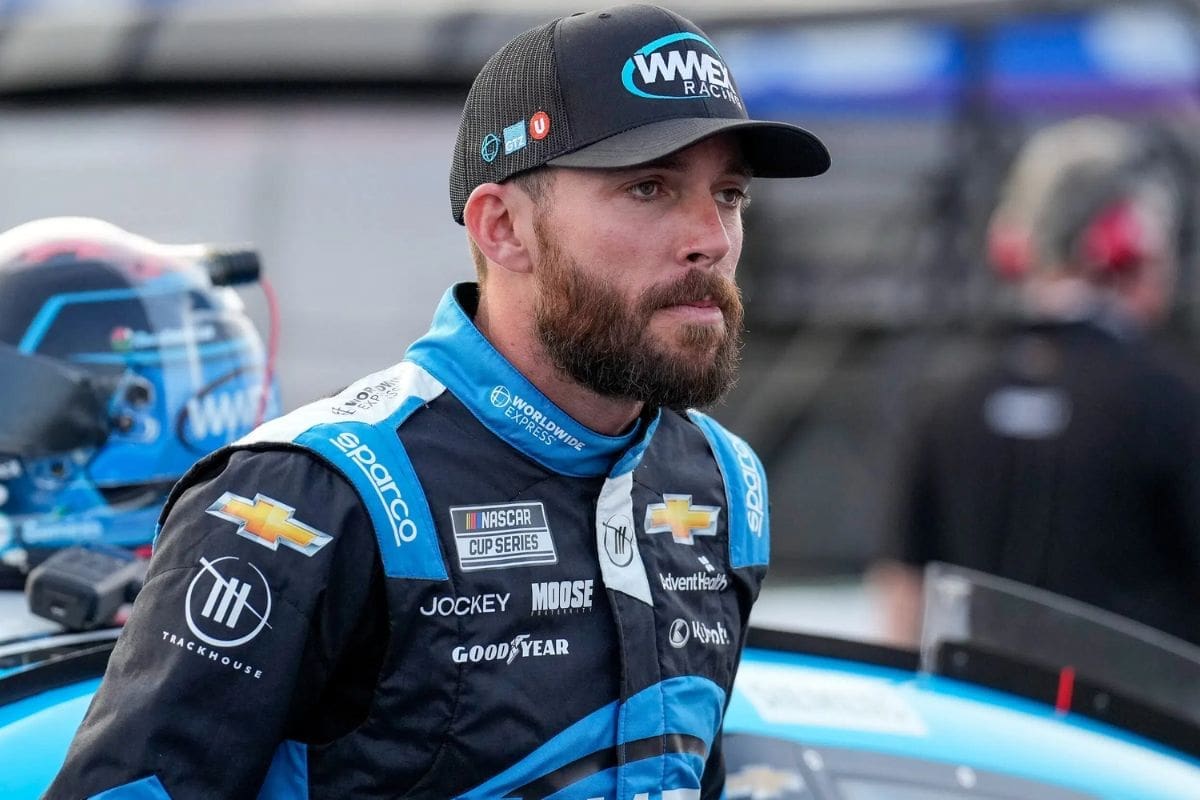Ross Chastain Slams NASCAR Over Atlanta Ruling: Ross Chastain’s recent outcry against NASCAR’s decision at Atlanta Motor Speedway has shed light on the ongoing debate surrounding the organization’s rules and their impact on drivers. The frustration expressed by Chastain underscores a larger issue within the sport, with many questioning the fairness and consistency of NASCAR’s practices.
As Atlanta Motor Speedway continues to evolve, drivers like Chastain are calling for a reevaluation of the rules governing their performance on the track. The question remains: Do NASCAR’s decisions truly reflect a level playing field for all competitors?
Ross Chastain Criticizes NASCAR’s Practice Rules
Ross Chastain vehemently denounces NASCAR’s current practice regulations as detrimental to driver safety and performance in the Cup Series. The safety concerns stemming from limited practice sessions are paramount, especially for younger and less experienced drivers who rely on track time to familiarize themselves with the nuances of each circuit. Chastain emphasizes the critical role of practice in honing driver skills and acclimating to different track conditions, ultimately enhancing overall safety on race day.
Moreover, the lack of rule flexibility in NASCAR’s practice regulations inhibits teams from adequately preparing their vehicles for optimal performance. Without sufficient track time, teams are unable to fine-tune their setups, potentially compromising the competitiveness of the field. This restriction not only hinders driver experience but also diminishes the level playing field by limiting opportunities for teams to gain a competitive advantage through thorough track preparation.
In essence, Chastain’s critique underscores the necessity for NASCAR to reevaluate its practice rules to prioritize safety, enhance driver experience, and promote fair competition in the Cup Series.
Drivers’ Frustrations
The frustration among drivers in response to NASCAR’s decision to eliminate practice sessions is palpable, with concerns raised about the impact of this move on team preparation and driver performance. The decision not only affects the drivers’ ability to fine-tune their cars but also raises significant questions regarding driver safety. Without practice sessions, drivers are forced into race conditions without the opportunity to adjust to track conditions or address any issues with their vehicles, potentially compromising their safety on the track.
Furthermore, the lack of practice time directly impacts team preparation, hindering the ability of crews to optimize the performance of the cars. This can lead to subpar performances on race day, affecting not only the drivers but also the teams as a whole. The inconsistency in rules, with sudden changes like these, leaves fans and drivers alike questioning the rationale behind such decisions and the impact they have on the sport’s overall integrity. NASCAR must address these concerns to ensure the well-being of the drivers, the competitiveness of the sport, and the satisfaction of its fanbase.

Atlanta Motor Speedway’s Evolution
Atlanta Motor Speedway’s evolution presents a dynamic challenge for drivers due to the shifting track conditions and loss of grip experienced over time. The track’s surface undergoes significant changes as races progress, making it a demanding environment for competitors. Handling challenges become more pronounced as tire wear increases throughout the race, forcing drivers to adapt their racing strategies continually. This evolution demands not only speed and skill but also an acute awareness of the track’s nuances and the ability to make precise driver adjustments on the fly.
Drivers at Atlanta Motor Speedway must navigate a track that is known for its abrasive surface, causing tires to degrade rapidly and adding an extra layer of complexity to an already demanding race. As the rubber wears off the tires, drivers are faced with the dilemma of balancing speed with tire management, a delicate task that requires strategic thinking and precise execution. The constantly evolving nature of Atlanta Motor Speedway challenges drivers to stay ahead of the changing track conditions, emphasizing the importance of adaptability and skill in this high-stakes racing environment.
Call for Change
Amidst growing concerns surrounding race safety and the competitive landscape, a vocal call for change reverberates through the NASCAR community. The dissatisfaction stemming from the lack of practice sessions has prompted drivers like Ross Chastain to urge NASCAR to rethink its policy on practice. With the influx of younger drivers as young as 18 years old joining races, there is a heightened emphasis on the importance of adequate driver preparation. Chastain and others fear that without sufficient practice, there could be an increase in multiple-car wrecks, raising safety concerns on the track.
The current debate on practice sessions adds to the ongoing discussions within NASCAR about optimizing race conditions for both safety and maintaining a competitive advantage. Drivers argue that practice sessions not only enhance their skills but also provide crucial insights into the track conditions, ultimately influencing their competitive edge. As calls for rule adjustments echo through the NASCAR community, the pressure mounts on NASCAR officials to address these concerns and strike a balance between safety regulations and maintaining the competitive spirit of the sport.

News in Brief
Ross Chastain criticizes NASCAR’s practice rules, expressing concerns over safety and performance in the Cup Series. He denounces the limitations on practice sessions, emphasizing their crucial role in enhancing driver skills and acclimating to diverse track conditions. Chastain argues that the inflexibility of practice regulations hampers teams’ ability to optimize their cars, affecting competitiveness and compromising safety. The frustration extends to other drivers, highlighting the impact on team preparation and overall race integrity. As Atlanta Motor Speedway evolves, the dynamic track conditions amplify the challenges faced by competitors. The call for change intensifies, with drivers urging NASCAR to reconsider its practice policies to strike a balance between safety and maintaining a competitive edge.
Our Reader’s Queries
Q: Has Chastain won a Nascar race?
A: Ross Chastain made a seamless transition to the No. 1 Trackhouse Racing Team Chevrolet for the entire 2022 NASCAR Cup Series season. His remarkable achievement came with the organization’s inaugural victory at the Circuit of The Americas, marking a significant milestone for both Chastain and the team.
Q: How fast was Chastain going on the wall?
A: Chastain slams into the wall at 130 mph, causing erratic data as he spins from wheelspin. The steering trace goes silent against the wall, with Chastain only resuming input after straightening out from the impact.
Q: Did Ross Chastain win the championship?
A: In a surprising turn, the NASCAR Champion Cup Series Race witnessed a break from tradition in 2013. Ryan Blaney secured the Series Cup and Championship title despite finishing 2nd. The race victory went to Ross Chastain, skillfully driving the No. 1 Chevrolet car.
Also Read: Corey Lajoie Vs Ross Chastain: Who’s to Blame for Daytona 500 Drama?
